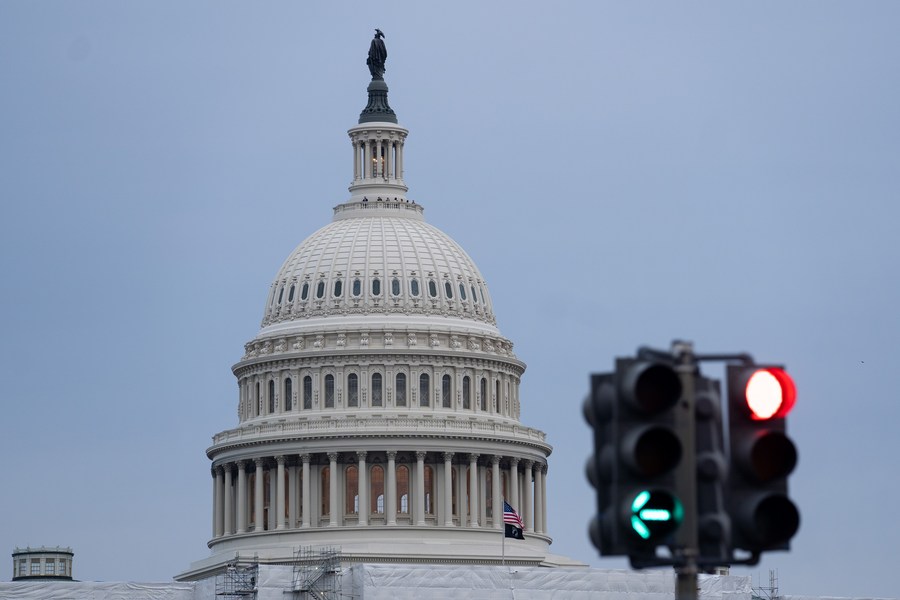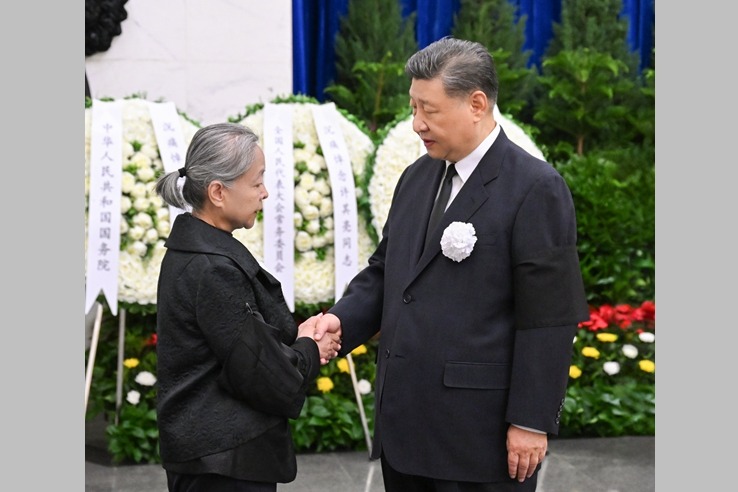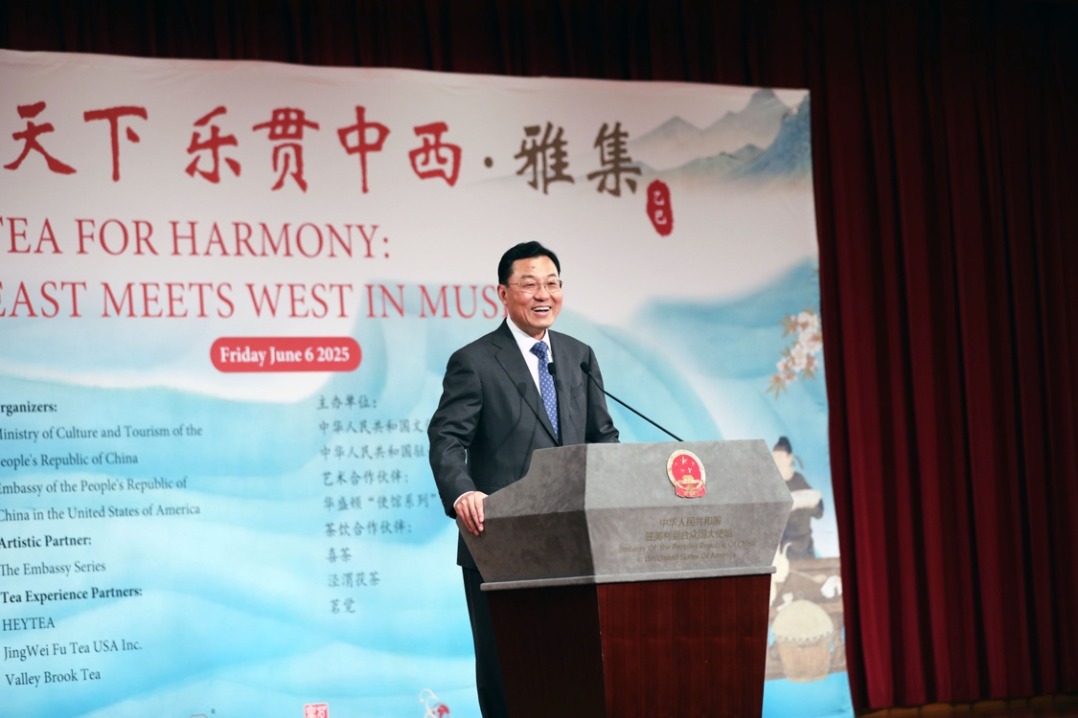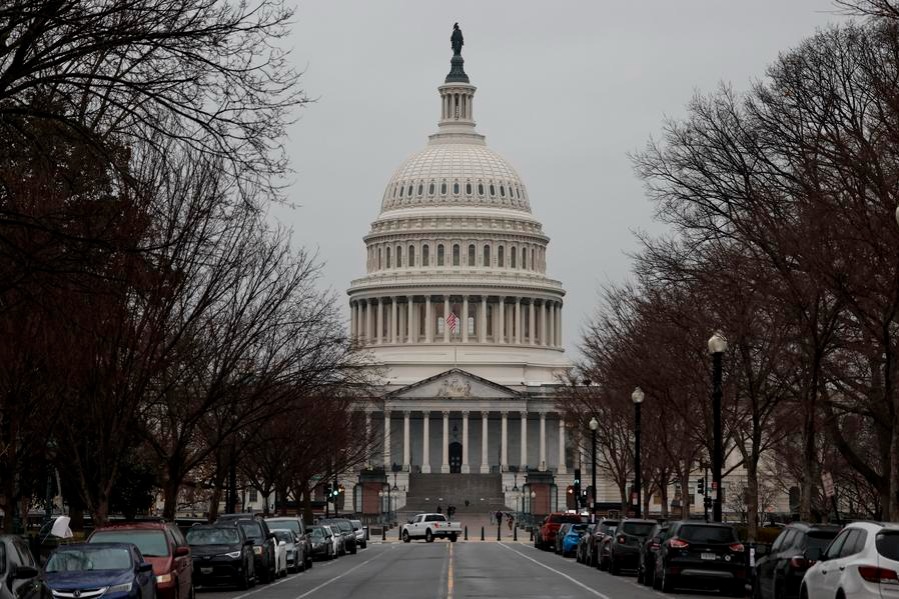Homeland economics is not the right medicine for the US
By Guo Jiulin | chinadaily.com.cn | Updated: 2023-11-30 09:56

On October 2nd, the Economist launched a special report on "homeland economics", an industrial policy that is being carried out by the United States and other Western countries. Callum Williams argued in his article Redividing the world: Governments across the world are discovering "homeland economics" that the industrial policy is a big mistake.
The report pointed out that some US politicians claimed that globalization poses significant risks to its economy in the form of market uncertainty, unpredictable pandemics and state intervention by geopolitical rivals. Through radical economic maneuvers like passing the Inflation Reduction Act and the Chips Act, the US could provide heavy subsidies to enterprises and products, aiming to encourage domestic industrial investment and production. Other countries followed suit. Leyen, the president of the European Commission, boasts that the European Union is "the first major economy to set out a strategy on economic security". Macron talks of "strategic autonomy"; Modi likes economic "self-reliance". Taking inspiration from the "Made in China" scheme of 2015, they rolled out "Made in America", "Made in Europe", "Made in India", "Made-in-Canada plan" and "A Future Made in Australia".
Some call the above measures "global resilience" or "economic statecraft"; most name it "homeland economics." They believe that homeland economics is a necessary response to four major shocks - economic crisis, geopolitical shock, energy crisis and generative artificial intelligence - and similar future shocks. Its ultimate goal is to keep the benefits of globalization, and at the meantime to avoid the downsides it brought in order to create "a safer, fairer and greener world." However, the special report, however, argues that "homeland economics will create billions of losers." And it will "be difficult to make supply chains more resilient and is unlikely to help the economy. It adds that the new policies will do little "to reduce inequality, and not enough to deal with climate change."
Obviously, its advocates only emphasized the severity of the four shocks without reflecting on the causes of them. In addition, it is not a real economics but an absurd political manipulation to suppress their competitors. In fact, these systemic industrial policies are a new form of trade protectionism, which is designed to slow down globalization and undermine multilateral trade rules. They are, therefore, deceptive in nature with strong discrimination and exclusion.
Let's take a look at the root of these shocks respectively. The first is the economic and geopolitical shock. Some blindly believed that globalization is the culprit of the chain contraction and global economic downturns and that the government should be more involved in its economic activities. It is the greed that led to the chaos of the financial industry in the US, which finally triggered the economic crisis in 2008. Similarly, the regional conflict between Russia and Ukraine and the wars in Syria, Libya, Afghanistan and Iraq were deliberately created by the US who wanted to profit from them. All these were the reactions of the US strategic anxiety of worrying about the loss of its hegemony. Without repeated provocations from the US, how can there be a trade war and ongoing conflicts?
And then there's the energy shock. The United States does not mean to promote the general well-being of the global village through carbon reduction. Instead, it is attempting to utilize it as a political tool to restrict others. If globalization is continuously pushed forward, the world's energy can be rationally distributed, but the United States tries to monopolize the energy market and holds the world's energy in its own hands. Nor is the US preference for clean energy from real environmental concerns. Feeling the pressure from China in the areas of solar energy and electric vehicles, the United States began to clamp down on China's wind power, photovoltaic and other industries, hoping to prevent China from achieving a clean energy transition.
The last is the AI shock. Artificial intelligence technology now is widely used in finance, medical care, transportation, manufacturing and other fields, and has a profound impact on economic development and the progress of human civilization. Meanwhile, its potential risks like data theft, cyberattack, economic security, "data poisoning" and military security could be ignored. On the one hand, artificial intelligence can be used in lethal autonomous weapons to establish confrontation advantages; On the other hand, it can connect networks, decision-makers and operators to make military operations more targeted strike more widely. Therefore, a secure economic and development environment is critically important for all parties involved. Instead of engaging in confrontation, decoupling, a new Cold War and deglobalization, the US and its allies should work together with China to contain these potential risks through cooperation and coordination to make a safer and greener world.
The US place the blame on globalisation and China for hollowing out its manufacturing sector and taking jobs away from its workers. The fact is that after the 1990s, the US leading western countries formulated the "WTO" rules of economic globalization, and moved their manufactory industries with high energy consumption to developing countries to obtain cheap raw materials and labor to profit from the global market. As they designed, globalization helped the developed countries maintain their high welfare and social prosperity, but the fast development of the developing countries was not their expectation. Facing their own economic recession today, the Western countries, however, blame globalization and try to slow down their process of globalization under the banner of "self-rescue".
Secondly, systematic industrial policies are, in essence, discriminatory and exclusive. As we know, the accepted practice of a government in encouraging their industry is to provide subsidies without discrimination to all enterprises that sell or produce in the market of their own country, regardless of the background of enterprises. Second, it is not allowed to export low-price dumping subsidies, otherwise, it is regarded as discrimination against market competitors. All countries have the right to protect their market share, once a product is found to be suspected of dumping at low prices, the relevant countries can initiate anti-dumping and countervailing investigations following international conventions, to curb malicious dumping.
However, the subsidies to the chip industry and new energy vehicles carried out by the West happen to be exclusive and discriminatory. First of all, the US Chip Act stipulates that anyone who invests to set up a factory in the United States is not allowed to invest in China within ten years, otherwise, it is not allowed to obtain financial subsidies. Under the Act, companies that supply Chinese companies must obtain U.S. shipment permission. Huawei is the typical victim of the Act. Second, the Inflation Reduction Act of 2022 (IRA) stipulates that the U.S. government will provide tax breaks for electric vehicles produced in the United States and provide support for the automotive battery supply chain in the United States. However, it is very rare for a bill to have a clear territorial subsidy policy for vehicle assembly, key parts manufacturing and raw material sources. The manipulation aims to suck blood from all over the world through tough policies to bolster US's new energy industry that has no competitive muscles.
Third, it is deceptive for the US and its allies to encourage clean energy through green legislation on the grounds of creating a "safer, fairer, greener world." Since the environmental problem is the greatest challenge of mankind, the public has no reason to object to them. The US government requires companies to source and supply locally if they want to receive subsidy support. But companies involved say the rule will do more harm than good to the transition. So, the green legislations in essence are the best excuse for a great power confrontation created by the West. They aim to curb the fast development of China's new energy-related industries to maintain and maximize their interests. Looking back, we see that all the past prosperity and progress in human history have been achieved by sharing advanced technologies. If the West truly aims at the political ideal of peace and the well-being of its people, then they should directly make use of the advanced clean energy technologies that have been achieved without ideological prejudice to save the tremendous cost of repeated investment in capital, manpower and research and development.
Finally, homeland economics is not an economics but a political manipulation conspired to control the economy from political considerations and serve for geopolitical strategies. It is a smokescreen for implementing a new Cold War mentality under the guise of economics. The perception of preserving the benefits of globalization while avoiding its risks is but an illusion. The core of globalization is the interconnection of capital, technology, products, information and human resources of the globe to draw on each other's strengths and optimize the allocation of resources for the benefit of all mankind. So-called homeland economics, however, go against that end. It is just a makeshift for the US to extend its hegemony but not the right medicine for its disease. So it is doomed to bring more problems, such as a tougher and prolonged recovery of the world economy, soaring global refugees and more intensified conflicts.
Whoever started the trouble should end it. While enjoying social welfare, the United States and its allies should also take more international responsibilities, for their industrial policies should not only be conducive to their own development but the coordinated and harmonious development of mankind and our globe as well.
Guo Jiulin is a professor of American studies at Dalian Minzu University and Han Aitong is a senior student of Chinese International Education at the same university.
The opinions expressed here are those of the writer and do not necessarily represent the views of China Daily and China Daily website.
If you have a specific expertise, or would like to share your thought about our stories, then send us your writings at opinion@chinadaily.com.cn, and comment@chinadaily.com.cn.
























